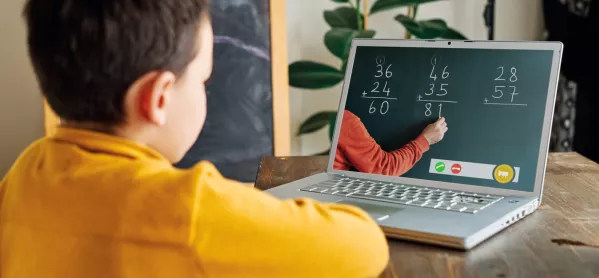Secondary schools limiting attendance by “operating a rota model” in local lockdown areas will not be allowed to order laptops for disadvantaged pupils, the Department for Education has said.
The DfE has announced today that it will be adding 100,000 laptops to its reserve of 150,000 devices for children forced to stay at home due to Covid-19.
These laptops are available to disadvantaged children in Years 3 to 11 who do not have access to a device and whose face-to-face education is disrupted, and those in all year groups who have been advised to shield because they are clinically extremely vulnerable.
Exclusive: 150K extra free laptops for local lockdowns
Coronavirus: DfE works with Border Force to bring free laptops to the UK
Revealed: How DfE free laptops failed to match need
But the department has made it clear that there are some circumstances in which schools cannot order laptops for disadvantaged pupils.
Coronavirus: Restrictions on free laptops for pupils
These include where secondary schools are operating a rota model or where pupils in need of laptops are among fewer than 15 children at the school who are self-isolating, and there are “no broader recommendations to a ‘bubble’ or year group”.
The DfE said devices can be ordered for disadvantaged children in Years 3-11 who are unable to attend school when:
- A primary school is only open to vulnerable children and the children of critical workers (Tier 4).
- A secondary school or college is only open to vulnerable children and the children of critical workers (Tier 3 or 4).
- A school has 15 or more children in Years 3 to 11 who are self-isolating having each been exposed to a confirmed case outside the school community.
- A local health protection team has advised a group of children in Years 3 to 11 (such as a “bubble” or year group) not to attend school.
- A school or college is fully open, but supporting a disadvantaged child living in another area who is unable to attend due to local travel restrictions
But the department said that schools cannot order free laptops for disadvantaged pupils when:
“Short-term absences for limited numbers of children should be managed using a school or college’s existing policies and resources,” the department added.
Mary Bousted, joint general secretary of the NEU teaching union, said: “This government is once again trying to cut corners over Covid. Schools were crying out for the right support for online learning throughout lockdown, not least for disadvantaged young people who did not have the right IT or wi-fi equipment at home that would have ensured a continuity and parity of learning.
“Prior to the lockdown, 700,000 children and young people did not have access to a digital device they could complete schoolwork on. Yet despite the government’s promises to provide laptops to ensure no child would be left behind, less than a third of those eligible received the equipment they needed to learn.
“Now, the government is creating new barriers for children with its criteria for where schools are not permitted to order equipment, despite the obvious need. Having failed nearly half a million young people by not delivering on their promise, the government is trying to reframe their own failure by once again shifting the problem on to schools.
“If government facilitates the employment of more teachers - supply teachers and those recently qualified but not yet in work are ready and waiting - then class sizes can be reduced and fewer pupils will be put in situations where they need remote education.”
The DfE said children without access to devices can be exempt from rotas, and should therefore be able to access education in schools during local lockdowns.





